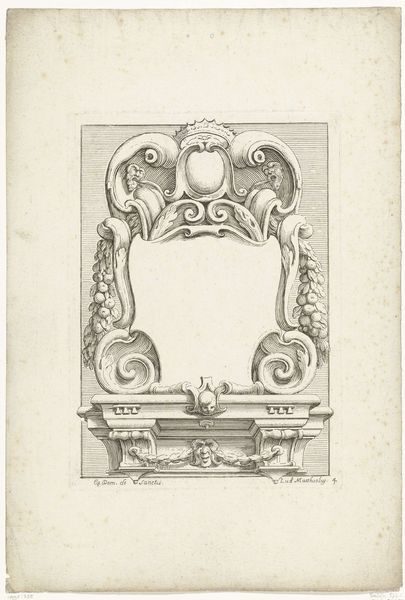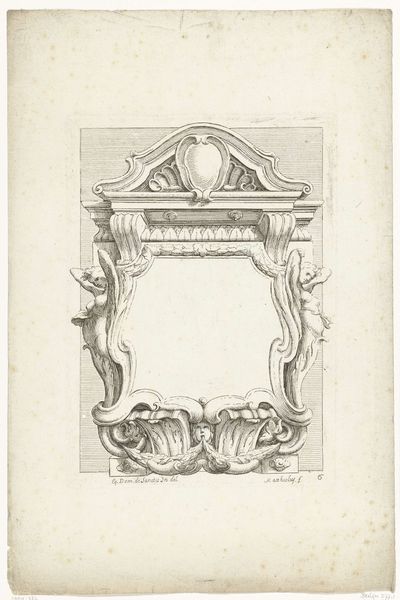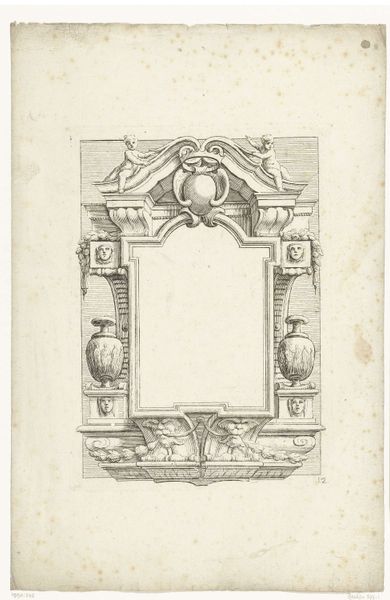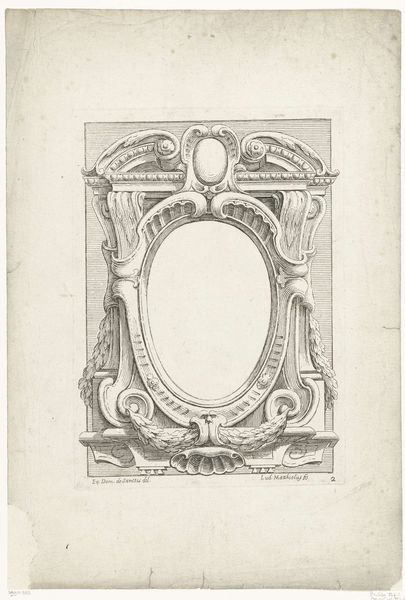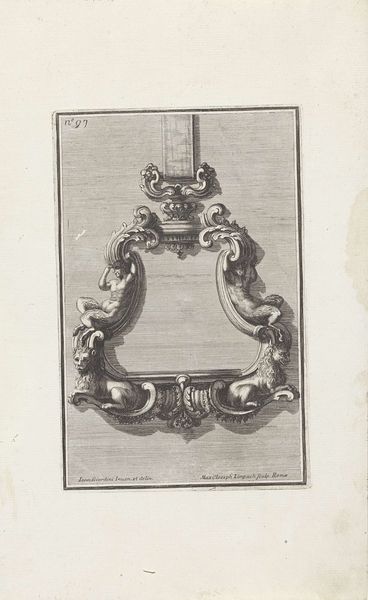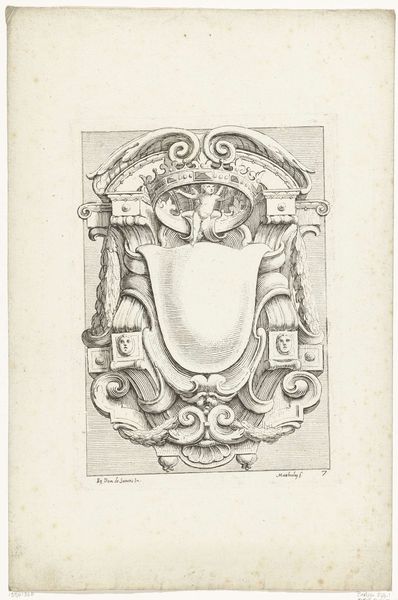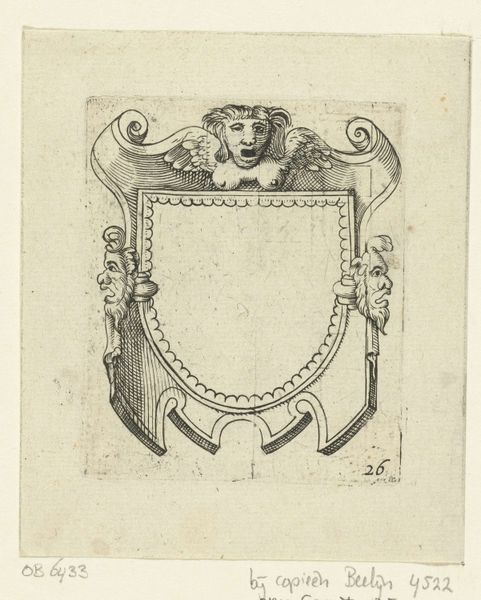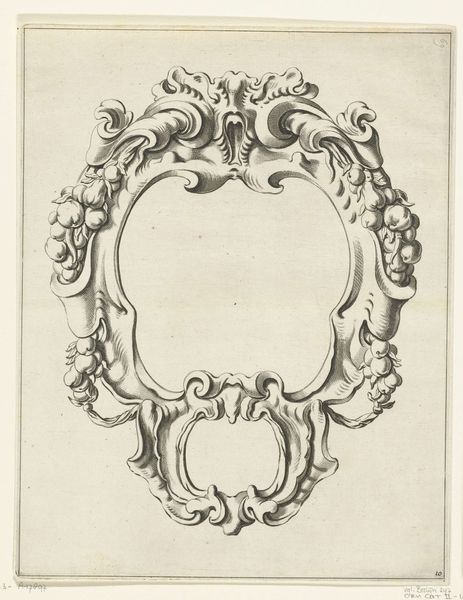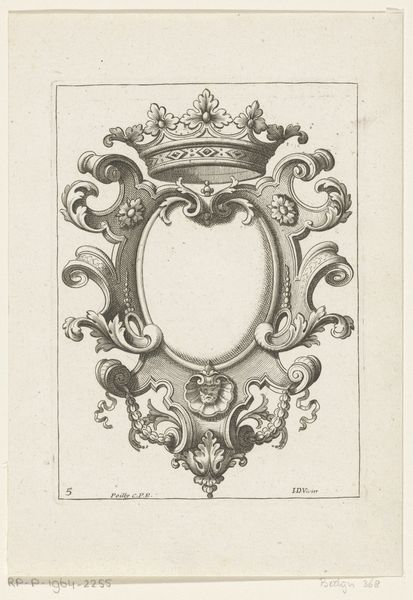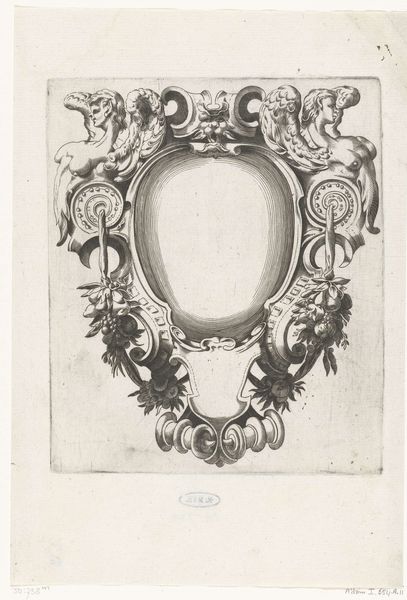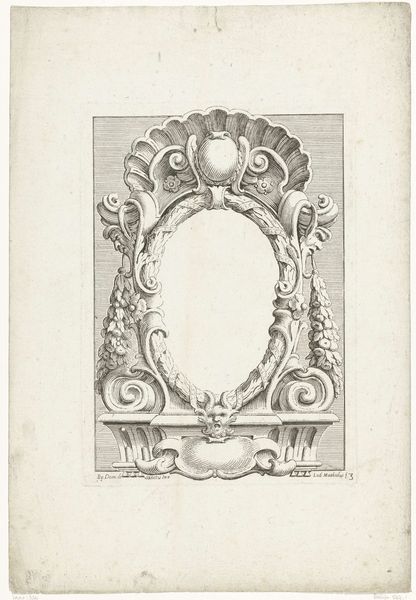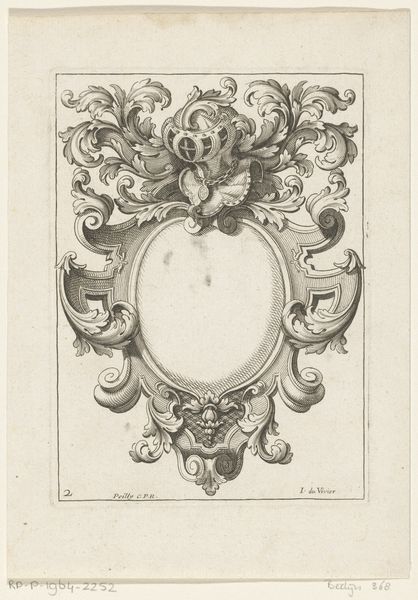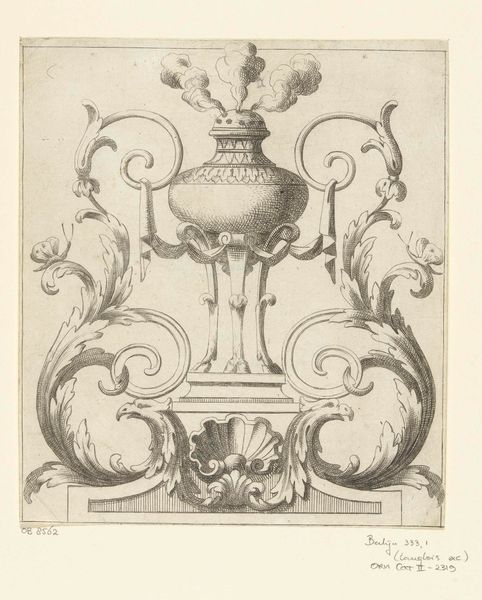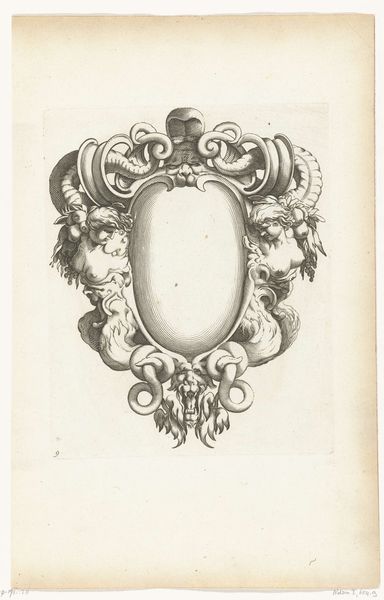
drawing, print, ink, engraving
#
drawing
#
baroque
# print
#
old engraving style
#
ink
#
pen-ink sketch
#
engraving
Dimensions: height 241 mm, width 172 mm
Copyright: Rijks Museum: Open Domain
Lodovico Mattioli made this print, Cartouche against pedestal, in the late 17th or early 18th century. He used a technique called etching. It's not drawing in the traditional sense. An etching like this begins with a metal plate coated with a waxy ground. The artist scratches an image into the ground with a needle, then immerses the plate in acid. The acid bites into the exposed metal, creating lines. The plate is then inked, and the surface wiped clean, leaving ink only in the etched lines. Finally, it's pressed onto paper, transferring the image. This print shows Mattioli’s skill as a reproductive artist. It's not just about the image but about the labor and skill involved in translating a design into a reproducible form. Prints like this circulated widely, influencing craftsmen and designers. They democratized access to high style, bridging the gap between elite art and everyday production. Looking closely at the lines, and the process behind them, reminds us that art is always connected to broader social and economic forces.
Comments
No comments
Be the first to comment and join the conversation on the ultimate creative platform.
